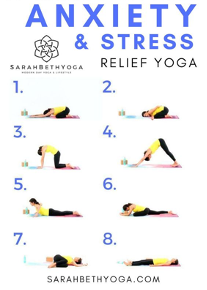5 Practical mental health tips to feel better right now
- inquiremedia

- Jan 27, 2021
- 4 min read
(Image courtesy of Unsplash)
27th January 2021
By Evie Goodwin
Disclaimer: All advice given is purely from personal experience and should not be used as a substitute for professional medical advice, diagnosis or treatment. If you are worried about your mental health and safety, please contact one of the organisations listed at the end of this article.
It is an undeniable truth that living through a pandemic and the restrictions that go alongside this new reality have taken a toll on our collective mental health. Sometimes, although well-meaning, commonly given advice for battling negative emotions can feel a little overwhelming if you’re really struggling. Here are 4 simple things you can try right now to distract from destructive thoughts and change the course of your emotions.
1. Try conscious breathing
Conscious breathing is essentially the practice of deep breathing and consciously focusing your mind on your body’s most essential function. By returning your focus to your breath rather than anxiety-inducing thought patterns, emotions can become more manageable and you may feel more grounded. Try these methods outlined below:
4-7-8 Method
· Inhale for 4 seconds
· Hold your breath for 7 seconds
· Exhale for 8 seconds
· Keep your breaths slow and even and try to focus on each breath as it enters and leaves your body; repeat as many times as you like until feeling calmer.
Visualisation techniques
· Having a visual image of your breath leaving and entering your body can help in focusing the mind. Try thinking of each in-breath as silver, and each out-breath as gold, or each inhale as a ‘birth’ and every exhale as a ‘death’.
· Visualise your breathing as a journey; each cycle of inhalation and exhalation as bringing you closer to your calm, positive and natural state of being.
Repeat positive affirmations
Repeating affirmations or mantras in your mind whilst breathing can be useful in preventing invasive thoughts. Here are some that I find highly effective:
· ‘I radiate love and positivity, and others reflect this back to me.’
· ‘My body is healthy, my mind is brilliant, and my soul is tranquil’.
· ‘With every breath, I release tension and feel at peace.’
2. Use morning sunlight to your advantage
Aim to get at least 10-30 minutes of morning sunlight (between the hours of 7am-12pm) each day. Aside from being a nice way to get some fresh air and exercise, a morning walk to expose yourself to some sunlight has the practical effect of boosting serotonin levels and aiding the function of your central nervous system.
Furthermore, exposure to daylight is essential in regulating our bodies internal clock, or circadian rhythm, which impacts our eating and sleeping schedules. Although it’s often tempting to stay locked indoors when we’re feeling down, it’s well worth forcing yourself outside for a little bit each day to aid hormone production and mood stabilization, and combat insomnia.
3. Stretch and release tension
Just like consciously breathing, focusing on your body through yoga or a simple stretching routine can help us feel more grounded when becoming wrapped up in stress or anxiety. Think about your body right now; if your shoulders are tensed, release them down away from your ears. Unclench your jaw and relax your facial muscles. Straighten your spine and let yourself sit back in your seat. Anxiety can cause us to unconsciously tighten certain muscle groups and cause tension without us even realising.
Don’t feel the need to get a sweat on or push yourself through intense yoga routines, simply focus on the movement of your body and enjoy stretching your muscles. Use these simple yoga poses to relieve physical anxiety and relax.
(Photo courtesy of Sarahbethyoga.com on Pinterest.)
(Photo courtesy of moveitmonday.org on Pinterest)
4. Stop scrolling
It is scarily easy to lose hours of the day to mindless scrolling through social media. The constant stimulation afforded to us through our smart phones may seem like harmless distraction at times. But it is not healthy to be shown nonstop images of perfectly romanticised lives and, thus, to naturally compare them to our own.
If you’re feeling overwhelmed, a mini digital detox may be what you need. Try to not check your phone for the first hour of the day; use this time to go consciously go about your morning routine and focus on making yourself feel good without the distraction of social media. Build up the amount of ‘phone-free’ time within your day and try to give yourself a set amount of time to consciously check social media, reply to messages and stay in touch with others.
5. Treat yourself with kindness
Aside from these practical steps to help us feel better, the single most important thing you can do for your mental wellbeing is the be kinder to yourself. It is normal to feel stressed, overwhelmed and not in control of our emotions sometimes, so don’t beat yourself up for being human. Use these tips to take care of your mind and body and be proud of yourself for living through such strange times; nothing lasts forever, and we can all combat negativity by looking out for ourselves and one another.
If you need extra support or urgent care:
Find a local NHS urgent helpline (24 hour): https://www.nhs.uk/service-search/mental-health/find-an-urgent-mental-health-helpline
Urgent support: If you need someone to talk to, call 116 123 to talk to Samaritans or text ‘SHOUT’ to 85258 to contact Shout Crisis Text Line.


































Comments